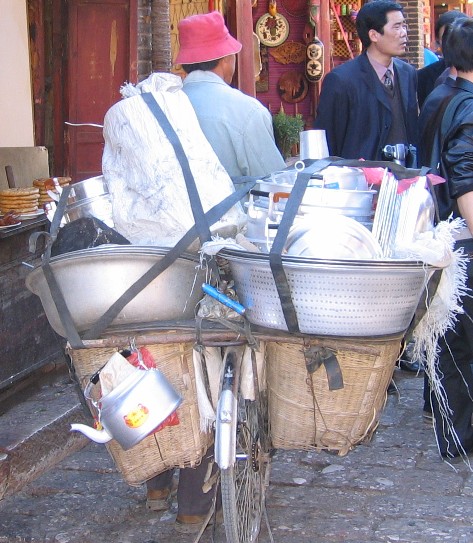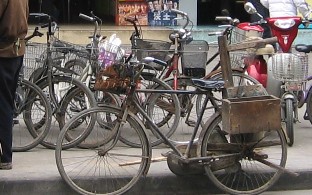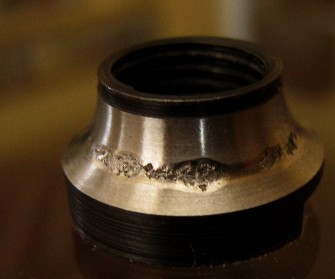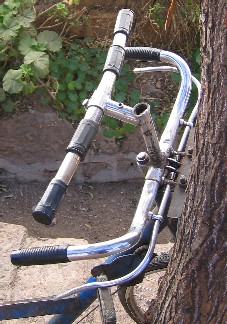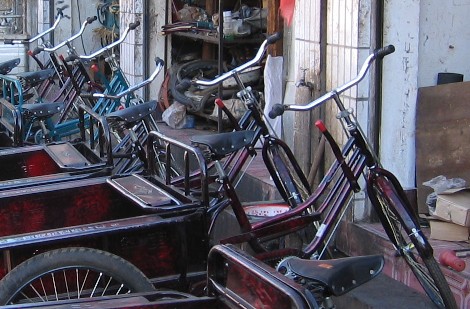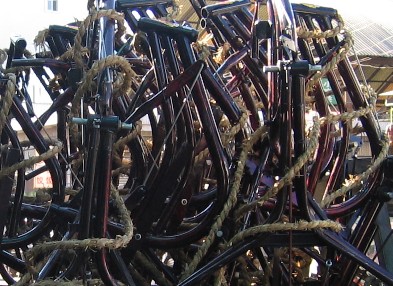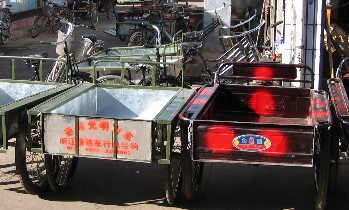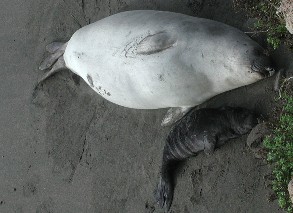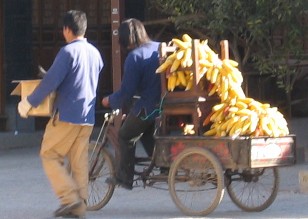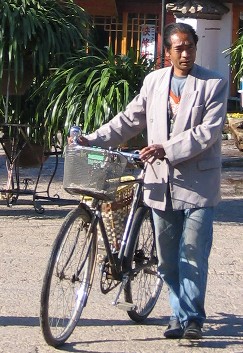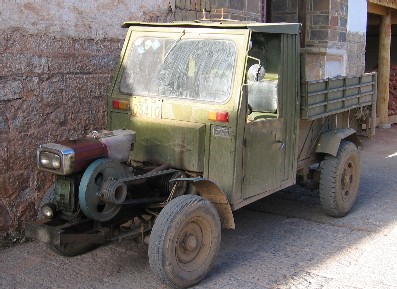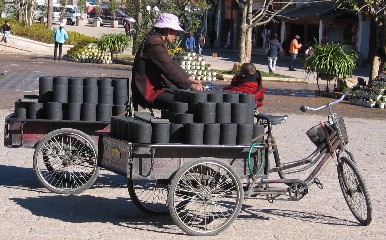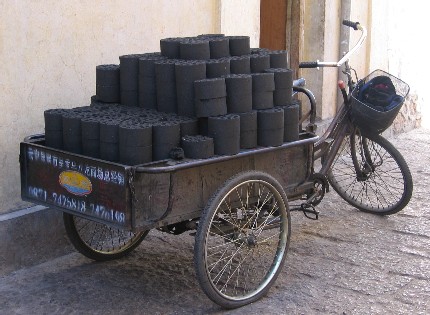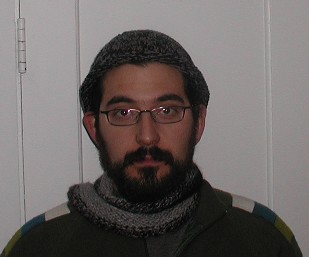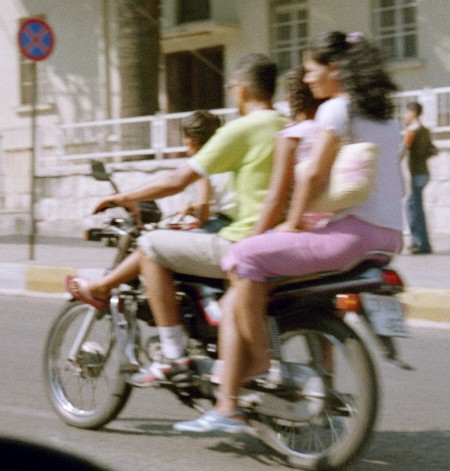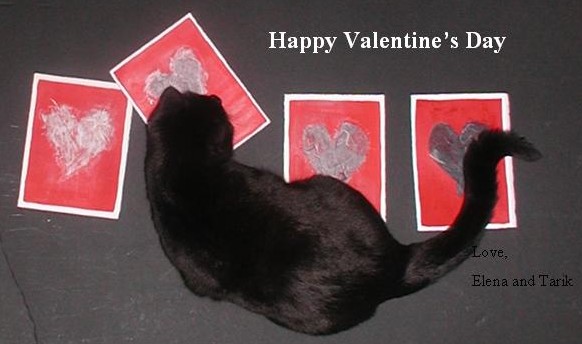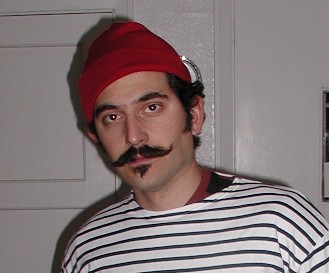More Tyler Hamilton and More Doping Updated 2/16/06, 4pm to fix a few typos and factual errorsA nice clean analysis of the difficult to read
CAS report on the Tyler Hamilton case is
here on cyclingnews.com. If you read through it, it is pretty damning.
They, the Court of Arbitration for Sports (CAS), did a decent job rebutting all of Tyler Hamilton's defensive arguments, and there is some previously unreported (in the cycling media) tests, both blood and DNA that seem to indicate that Hamilton has no genetic excuse for two blood types being there. There is also a statement (no proof given) that Santi Perez and Tyler Hamiton have different blood types,
which would be consistant with both of them failing this test due to mixing up their blood types which would mean that switching their blood would be a bad idea as it could be fatal, see the
Jesus Manzano interview for a possible outcome of mixing blood types. Again cycling news offered no proof, but states that Perez and Hamilton are different blood types.
Additionally, if I am reading the report/summary correctly, Tylers blood was pretty abnormal throughout the year preceeding this showing evidence of very high red blood count in both hemoticrit measurements AND hemoglobin/reticulate ratio. The former shows abnormal high red blood cell count and the latter shows that the red blood cells in the body were not created by the body. The evidence here, although not able to be used to suspend Tyler as the test in question was being validated, is that he was manipulating his blood all through 2004, not just at the olympics and the vuelta. The insinuation, again, is that he was
homologously autologously blood doping (injecting his own blood into his body) throughout 2004, but screwed up (or changed methods) during the Vuelta in september '04
and got his blood mixed up with Santiago Perez's and both Hamilton and Perez got suspended for
autologously homologously blood doping (other persons blood in their body). Pretty nasty stuff.
There are still uncertainties about the test's false positive rate (CAS claims 0% - bullpuckies, even if the test is infallible the testers are not), testing procedure and the specter of specific and non-anonymous testing, AND Dick Pound shooting his mouth off on cases that are unsettled.
The good news, as far as Hamilton is concerned, is that the CAS decided to move his suspension date back to the day he failed his test, which seems reasonable, especially given that he was not officially suspended until 7 months later. So not only is he eligible to return in Sept '06, he is allowed to ride with a Pro Tour team as soon as he returns as the Pro Tour did not exist when he was suspended. I expect someone will take him back and if he is willing, he maybe racing the last couple of Pro Tour races in 2006.
All told, not terrible. Anecdotally, he is still training hard in Colorado and possibly now in Girona according to his
website and he did win a very big unsanctioned
hill climb six months back, so he probably can come back this year and race well.
My (new) guess is he signs with Phonak or a down on their luck protour team this year for cheap and races well in september and moves up to a big paycheck and better team for 07. I am of the opinion that doping is rampant and he should be welcomed back when his suspension is done. I wish he would be more forthcoming with his details and practices, but I won't hold it against him. It will be interesting to see how he is treated in the peleton, there are so many undetected dopers and exdopers still riding that I think there will be no problems.
The test that caught him was a new test. This is very typical. Rich racers rarely fail established tests for drugs as they pay good money to doctors to make sure they can dope without failing tests. The dual whammy of the new test and a mistake in switching blood bags is what got Tyler.
Roberto Heras aside, most recent doping cases from EPO are people either being stupid and experimenting on their own (Adam Bergman and Chris Sheppard) or people who were caught by police action (Raimondo Rumsas, David Millar) or people that made dumb mistakes (Tyler, maybe Heras? why else?). Team doctors and unethical scientists are always able to keep a step ahead of the testers. Smart riders will pay those who know how to cheat well to help them. The stupid and the independent will get caught, or those who get taken by suprise by a new test (Balco scandal in track and field and baseball, Hamilton).
It is interesting to look at two recent and very similar EPO confessions by US based roadie
Adam Bergman and MTB'r
Chris Sheppard. If we take them at their word, these were two athletes who experimented with EPO in an effort to improve for a discrete reason. They were not part of a big sports machine a-la euro road cycling and they were probably hurting for the know-how on evading the testers. I could just as easily believe that they were habitual dopers and I definitely believe that they both would have continued EPO use if they did not get caught.
Now lets look at a somewhat similar case of
David Millar. Cyclist gets busted for EPO, but confesses afterwards. Like Hamilton and Bergman, Millar will return to competition this year. Millar served his time and should be at the starting line for the Tour de France in 2006. Whats the difference? I find it hard to take him at his word that he was doing this once or twice and that he
kept the vials as a reminder of his tainted actions. This is a person who did not fail a doping test, he was caught by the french police who were investigating widespread and organized doping on his team. Millar claims he was not part of that organized doping, he was different. Before his confession he
vehemently denied and visciously slandered his teammate who was caught and named him as a participant and leader in the teamwide doping. His claims of independent doping may just be a way to keep from being convicted in the courts for doping offenses and lying about it in court, or they may be true, but he still was doping intellegently enough not to get caught by the cycling authorities. This suggests that he was doing this under a doctors supervision.
I would very much like to be convinced that doping is not a problem in cycling and pro sports, but I think it is rampant. There is too much money and too many new medicines and technologies that can be used and abused. Prior to the start of the Olympics 12 xc skiing athletes were suspended for
hemoglobin irregularities. Does this mean the test is too sensitive, or that there is some new form of blood doping that cannot be directly tested for? XC skiing is the cycling of the winter olympics. No other winter sport requires the level of endurance that XC skiing does, no other winter sport has the drug related scandals like
Finland or
Muhlegg.
Whats the solution? I have no idea really. Three come to mind:
Status quo, make a good effort (unlike baseball) to catch the offenders, maybe the sports get clean, maybe you drive doping to higher levels while remaining one step behind.
Institute Safe Doping- transparent doping with doctors care could make the athletes safer and better, then you can have two classes of sport, stock people and modified.
Get really punitive - lifetime bans and/or criminal prosecution for athletes and doctors involved unless they squeal on exact methods of their doping, who got them the drugs what they are using etc. Fascist, sure, but possibly the only way to REALLY clean up the sport.
I probably will not be turned off to fandom of cycling or baseball unless the third is instituted. I would probably prefer status quo to "safe" doping, but who knows...
OK, here are some more interesting things to read on the subject, if anyone is still reading (anyone? anyone?):
My thoughts on steroids and baseball and LASIK HERE
Outside Magazine has had some excellent articles on doping in the last few years:
Stuart Stevens on taking steroids and EPO under a doctors supervision.
Brian Alexander's eye opening article on testing and how they are not catching up and an Don Caitlin's interesting proposal to end doping.
Joe Lindsey writes on Lance Armstrongs doping affair.
Joe Lindsey also writes a quasiweekly colum on Mountainbike.com that covers doping issues of the day very well, the boulder report. His take on the Tyler Hamilton verdict here. Thanks to Joe for pointing out some factual errors in my initial posting of this article.
Breaking the Chain by Willie Voet is an interesting tell all on the Festina Affair that rocked the Tour de France in 1998. Methods, drugs and some history of doping in the eighties and nineties.
by Willie Voet is an interesting tell all on the Festina Affair that rocked the Tour de France in 1998. Methods, drugs and some history of doping in the eighties and nineties.
A Rough Ride ,Paul Kimmage, a book detailing the thankless life of a domestique in the eighties and the pressure to take drugs in the peleton.
,Paul Kimmage, a book detailing the thankless life of a domestique in the eighties and the pressure to take drugs in the peleton.
Put me back on my bike , William Fotheringham, Biography of Tom Simpson, one of britians best cyclist and the first cyclist to die on the bike due to doping. His death sparked the doping reform movement that is with us today.
, William Fotheringham, Biography of Tom Simpson, one of britians best cyclist and the first cyclist to die on the bike due to doping. His death sparked the doping reform movement that is with us today.
A tell all interview by Jesus Manzano, one of the few recent pros to not only admit to doping, but to spill all the beans he had, details here and here
The case of Jerome Chiotti, his guilt over EPO use caused him to confess and give up his 1996 World Championship Medal. He confessed in 2000, all before he could have been caught explicitly for EPO use.
The case of Filip Meirhaeghe, former MTB World Champ, mostly unrepentant EPO user, sorry he got caught.
Another clear cycling news article on the efficacy of the EPO test, especially in light of a couple of triathletes "proving" their positive tests were false positives.
Thanks for reading.


